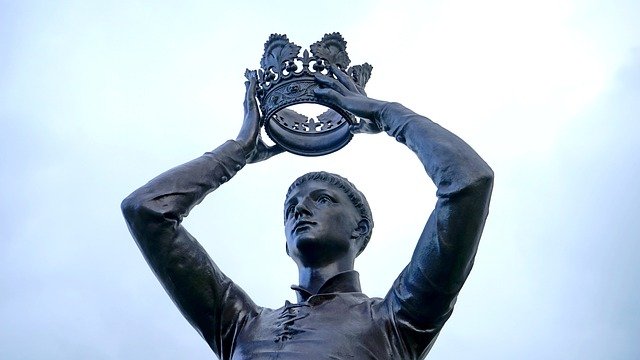Introduction to Macbeth
Read Summary of Macbeth’. William Shakespeare’s “Macbeth” is a significant work in his literary canon, often regarded as one of his darkest and most powerful tragedies. Set in Scotland during the 11th century, the play delves into themes of ambition, power, and fate, exploring the psychological and moral consequences of political ambition. The central characters—Macbeth, Lady Macbeth, King Duncan, and the three witches—navigate a complex narrative that reveals the destructive potential of unchecked ambition.
The historical context of “Macbeth” is rooted in the early 1600s, a period marked by political instability and intrigue. Shakespeare drew inspiration from historical sources, including Raphael Holinshed’s “Chronicles,” to craft a story that resonated with contemporary audiences. The play was first performed in 1606, during the reign of King James I, who had a keen interest in witchcraft and Scottish history. This historical backdrop adds layers of depth to the play, enriching its narrative and thematic complexity.
Keywords: Summary of Macbeth, Macbeth Summary, Macbeth Themes, Macbeth Analysis, Macbeth Characters
“Macbeth” has been celebrated for its intricate character development and profound exploration of the human psyche. Macbeth himself is an enigmatic character, whose initial valor and loyalty are gradually eroded by his overwhelming ambition and desire for power. Lady Macbeth, equally compelling, embodies the ruthless drive that propels Macbeth towards his tragic downfall. The supernatural elements, represented by the three witches, underscore the theme of fate and predestination, suggesting a world where human actions are influenced by forces beyond control.
Over the centuries, “Macbeth” has been lauded for its dramatic intensity and philosophical depth. Its reception has evolved, with each era interpreting the play through its unique cultural and social lens. From its early performances to modern-day adaptations, “Macbeth” continues to captivate audiences, offering timeless insights into the complexities of human nature and the consequences of ambition.
Summary of Macbeth

Table of Contents
Keywords: Summary of Macbeth, Macbeth Summary, Macbeth Themes, Macbeth Analysis, Macbeth Characters
Macbeth Characters
Macbeth: The Tragic Hero
Macbeth, the protagonist of the play, is a Scottish general whose ambition is ignited by a prophecy from three witches. His character arc is defined by his ruthless quest for power, which ultimately leads to his downfall. Macbeth’s internal conflict and moral decline are central to the play’s tragic essence.
Lady Macbeth: The Ambitious Instigator
Lady Macbeth, Macbeth’s wife, is one of Shakespeare’s most complex female characters. She is instrumental in persuading Macbeth to pursue the throne, showcasing her ambition and manipulative prowess. Her eventual descent into madness highlights the psychological ramifications of their actions.
Banquo: The Noble Friend
Banquo, a fellow general and Macbeth’s friend, represents integrity and loyalty. Unlike Macbeth, Banquo does not act on the witches’ prophecies, showcasing his moral fortitude. His ghost’s appearance serves as a haunting reminder of Macbeth’s betrayal and guilt.
The Three Witches: Prophetic Catalysts
The three witches, also known as the Weird Sisters, play a pivotal role in ‘Macbeth.’ Their prophecies spark Macbeth’s ambition and set the play’s events into motion. They symbolize fate and the supernatural, adding a layer of mystique to the narrative.
The characters in ‘Macbeth’ are essential to understanding the play’s themes of ambition, power, and guilt. Each character, from Macbeth and Lady Macbeth to Banquo and the witches, contributes to the rich tapestry of this tragic masterpiece. Analyzing these characters provides deeper insights into one of Shakespeare’s most compelling works.
Act I: The Prophecy and Its Initial Impact
Act I of William Shakespeare’s “Macbeth” sets the stage for the dramatic events that follow by introducing the audience to Macbeth and his encounter with the three witches. The act begins on a desolate heath where Macbeth and Banquo, generals in King Duncan’s army, come across the enigmatic witches. These witches deliver a prophecy that Macbeth will become the Thane of Cawdor and eventually the King of Scotland. Banquo is told that his descendants will inherit the throne, although he himself will not become king.
Initially, Macbeth is skeptical of the witches’ prophecy. However, his curiosity is piqued when he is promptly awarded the title of Thane of Cawdor, thus partially fulfilling the prophecy. This newfound title triggers a shift in Macbeth’s mindset; he begins to contemplate the possibility of ascending to the throne. Despite his initial hesitation, the seed of ambition has been planted. Macbeth’s internal conflict is evident as he grapples with the moral implications of achieving power through nefarious means.
Lady Macbeth’s reaction to the prophecy is pivotal in shaping the course of the narrative. Upon receiving Macbeth’s letter detailing the witches’ predictions, she becomes resolute in her ambition for power. Lady Macbeth fears her husband’s nature is “too full o’ the milk of human kindness” to seize the crown by any means necessary. She resolves to push Macbeth towards regicide, thus playing a crucial role in his decision-making process. Her determination and manipulative prowess are starkly evident as she questions Macbeth’s manhood and courage, ultimately convincing him to commit to the heinous act of murdering King Duncan.
Act I crucially sets the tone for the tragic events that unfold throughout the play. It establishes the supernatural elements that drive the plot and delves into the psychological transformation of Macbeth, under the influence of both the prophecy and Lady Macbeth’s unyielding ambition. This initial act serves as a foundation for the exploration of themes such as ambition, fate, and moral corruption that permeate the play.
Act II: The Murder of King Duncan
Act II of William Shakespeare’s Macbeth is a turning point in the narrative, marked by the pivotal murder of King Duncan. In this act, Macbeth is driven by a potent mix of ambition and external manipulation, primarily from Lady Macbeth, to commit regicide and seize the throne. The internal conflict that plagues Macbeth before the murder is palpable, illustrating his deep-seated moral dilemmas and the psychological turmoil that accompanies such a grave act. This internal struggle is epitomized in his soliloquy in Scene 1, where he wrestles with the consequences of the deed, both earthly and eternal.
Lady Macbeth plays a crucial role in persuading Macbeth to follow through with the murder. Her manipulative influence is evident as she questions his masculinity and resolve, pushing him to act against his conscience. Her famous line, “screw your courage to the sticking-place,” underscores her relentless determination and the extent to which she is willing to go to see her husband crowned king. Lady Macbeth’s machinations and emotional manipulation serve as a catalyst for Macbeth’s actions, further complicating the moral landscape of the play.
The actual murder of King Duncan occurs offstage, heightening the tension and allowing Shakespeare to focus more on the psychological aftermath rather than the physical act itself. Immediately following the murder, both Macbeth and Lady Macbeth are consumed by paranoia and guilt. Macbeth is particularly disturbed by his inability to say “Amen” and by the hallucination of a voice crying out that he has murdered sleep. This symbolizes his realization that he has irrevocably altered his state of being and that peace will forever elude him.
In the wake of Duncan’s murder, the couple’s efforts to cover up their crime are frantic and fraught with tension. Lady Macbeth takes charge, instructing Macbeth to wash the blood from his hands and place the daggers with Duncan’s sleeping guards to frame them for the murder. Despite their attempts at deception, the growing suspicion among other characters, especially Banquo and Macduff, sets the stage for the subsequent unraveling of Macbeth’s ill-gotten power.
Act III: The Consequences of Ambition
In Act III of William Shakespeare’s “Macbeth,” the eponymous character’s ambition continues its perilous trajectory, leading to a series of events that further entrench his power while simultaneously heralding his eventual downfall. Upon securing his position as king, Macbeth’s paranoia intensifies, driven by the witches’ prophecy that Banquo’s descendants will inherit the throne. This fear propels Macbeth to orchestrate the murder of Banquo and his son, Fleance. Despite his meticulous planning, Fleance escapes, leaving Macbeth’s anxiety unabated.
The murder of Banquo, however, proves to be a turning point, both in Macbeth’s psychological state and in the narrative arc. During a banquet, Macbeth is haunted by Banquo’s ghost, an apparition visible only to him. This spectral visitation serves as a potent symbol of Macbeth’s overwhelming guilt and the moral decay that his unchecked ambition has wrought. Macbeth’s erratic behavior at the banquet further alienates him from his peers, raising suspicions about his capacity to rule effectively.
As Macbeth’s sense of security diminishes, his reliance on further violence and tyranny to maintain his throne increases. He becomes increasingly isolated, forfeiting the trust and loyalty of those around him. The ghost of Banquo not only represents Macbeth’s guilt but also foreshadows the inevitable consequences of his ambition. His hallucinations are a manifestation of his inner turmoil, indicating that his moral compass is irreversibly damaged.
Act III underscores the theme of ambition and its destructive effects. Macbeth’s actions, driven by his desire for power, lead to a series of tragic outcomes that serve as a cautionary tale about the perils of overreaching ambition. Through Macbeth’s increasing paranoia and the haunting presence of Banquo’s ghost, Shakespeare masterfully illustrates the psychological and ethical consequences of Macbeth’s choices. This act marks a critical juncture in the play, setting the stage for the inevitable unraveling of Macbeth’s reign.
Act IV: The Witches’ Deceptive Prophecies
In Act IV of William Shakespeare’s Macbeth, the titular character becomes increasingly consumed by his ambition and paranoia. Macbeth, now king, is desperate to secure his power and seeks out the witches for further guidance. The witches, symbolic of fate and the supernatural, provide Macbeth with a series of ambiguous prophecies that cleverly play on his insecurities and ambitions.
The witches’ first prophecy warns Macbeth to beware of Macduff, the Thane of Fife. This cryptic warning exacerbates Macbeth’s paranoia and drives him to take preemptive action against Macduff. The second prophecy assures Macbeth that “none of woman born shall harm Macbeth,” leading him to believe he is invincible. The third prophecy states that he will remain unvanquished until Birnam Wood comes to Dunsinane Hill, which Macbeth interprets as an impossibility, further inflating his overconfidence.
However, these prophecies are intentionally deceptive. The witches’ manipulation becomes evident as they present apparitions that provide Macbeth with misleading assurances, giving him a false sense of security. This deceptive guidance is a critical turning point in the play, as it sets in motion Macbeth’s final descent into tyranny and moral corruption.
Believing himself invulnerable, Macbeth decides to eliminate any perceived threats to his reign. His decision to murder Macduff’s family exemplifies his deepening moral decay. This act is not only a strategic move to neutralize a potential adversary but also a ruthless demonstration of his growing ruthlessness. The slaughter of Macduff’s innocent family starkly contrasts with Macbeth’s earlier hesitations about murdering King Duncan, highlighting how far he has fallen into the depths of tyranny.
Ultimately, Act IV reveals the witches’ role in furthering Macbeth’s downfall. Their deceptive prophecies exploit Macbeth’s weaknesses, propelling him towards actions that seal his tragic fate. This act serves as a critical juncture in the play, illustrating the devastating impact of unchecked ambition and the perilous influence of manipulative forces.
Act V: The Downfall of Macbeth
Act V of William Shakespeare’s “Macbeth” marks the climactic downfall of the titular character. The act opens with the Scottish forces rallying against Macbeth, led by Malcolm, the rightful heir to the throne, and the vengeful Macduff. The convergence of these forces signifies the beginning of the end for Macbeth, whose once seemingly invincible reign begins to crumble under the weight of treachery and despair.
As the act progresses, the witches’ prophecies unfold in ways that Macbeth had not anticipated. Birnam Wood, it seemed, would never move to Dunsinane Hill. However, Malcolm’s army cunningly disguises themselves with branches from Birnam Wood, creating the illusion that the forest is indeed advancing towards Macbeth’s stronghold. This cunning strategy fulfills the prophecy, shaking Macbeth’s confidence and revealing the limitations of his understanding and power.
Amidst the chaos, Lady Macbeth’s descent into madness reaches its tragic conclusion. Tormented by guilt and visions of blood on her hands, she succumbs to the psychological toll of their murderous deeds, ultimately taking her own life. Her death signifies the collapse of Macbeth’s personal world, leaving him isolated and increasingly desperate.
The final confrontation between Macbeth and Macduff is both intense and inevitable. Macbeth, clinging to the witches’ prophecy that no man born of a woman can harm him, faces Macduff in battle. However, Macduff reveals that he was “from his mother’s womb untimely ripped,” thus fulfilling the prophecy in an unexpected manner. In the ensuing fight, Macduff kills Macbeth, bringing an end to his tyrannical rule.
With Macbeth’s death, order is restored in Scotland. Malcolm ascends to the throne, symbolizing the return of legitimate leadership and justice. The downfall of Macbeth serves as a powerful reminder of the destructive nature of unchecked ambition and the inevitable consequences of tyranny. Shakespeare’s tragedy concludes with a sense of resolution, as the natural order is reestablished and peace returns to the realm.
Keywords: Summary of Macbeth, Macbeth Summary, Macbeth Themes, Macbeth Analysis, Macbeth Characters
Macbeth Analysis and Macbeth Themes
“Macbeth” by William Shakespeare delves deeply into several major themes that drive the narrative and shape the characters’ destinies. Among these, ambition, power, guilt, and the tension between fate and free will stand out as pivotal elements. The theme of ambition is starkly embodied in the character of Macbeth, whose insatiable desire for power leads him down a dark and destructive path. Driven by the witches’ prophecy and spurred on by Lady Macbeth, his ambition becomes a catalyst for his eventual downfall.
Power, and its corrupting influence, is another central theme. As Macbeth ascends to the throne through regicide, his initial triumph is overshadowed by paranoia and tyranny. The quest for power transforms him from a noble warrior into a despotic ruler, showcasing how absolute power can corrupt absolutely. Lady Macbeth, too, is consumed by the lust for power, and her manipulation of Macbeth underscores the destructive potential of unchecked ambition.
Guilt permeates the play, manifesting in both Macbeth and Lady Macbeth. After the murder of King Duncan, Macbeth is haunted by visions and paranoia, signifying his deep-seated guilt. Lady Macbeth, initially the more ruthless of the two, eventually succumbs to overwhelming guilt, epitomized by her obsessive hand-washing and eventual descent into madness. Their psychological turmoil highlights the moral consequences of their actions, painting a vivid picture of guilt’s corrosive power.
The interplay between fate and free will is also a significant theme in “Macbeth.” The witches’ prophecies set the plot in motion, suggesting a predetermined fate. However, it is Macbeth’s actions, driven by his ambition and choices, that fulfill these prophecies. This tension raises questions about the extent to which characters are bound by fate or exercise free will, enriching the play’s moral and philosophical complexity.
Overall, the major themes in “Macbeth”—ambition, power, guilt, and fate versus free will—are intricately woven into the fabric of the story. They not only drive the characters’ actions but also impart timeless lessons on the human condition, ambition’s perils, and the inescapable nature of guilt.
Conclusion: The Legacy of Macbeth
Macbeth stands as a monumental work within William Shakespeare’s oeuvre, renowned for its profound exploration of ambition, power, and moral decay. Its enduring legacy is evident not only in its frequent performances on stages worldwide but also in its significant influence on literature and popular culture. As one of Shakespeare’s most powerful tragedies, Macbeth delves deep into the psychological and ethical complexities of its characters, particularly the eponymous protagonist whose unchecked ambition leads to his ultimate downfall.
The play’s themes of ambition, guilt, and the corrupting influence of power resonate profoundly with contemporary audiences. These timeless themes highlight the play’s relevance in today’s society, where the consequences of unbridled ambition are as pertinent as ever. Through Macbeth’s tragic arc, Shakespeare offers a compelling commentary on human nature, emphasizing the destructive potential of ambition when morality is cast aside.
Macbeth’s influence extends beyond the realm of theatre into various aspects of popular culture. Its motifs and quotes have permeated literature, film, and even politics. The iconic lines such as “Out, damned spot!” and “Is this a dagger which I see before me?” have become ingrained in the cultural lexicon, illustrating the play’s far-reaching impact. Additionally, the character of Lady Macbeth has evolved into a symbol of ambition and moral conflict, often referenced in discussions of power dynamics and gender roles.
In conclusion, Macbeth remains a vital and compelling work that continues to captivate and challenge audiences. Its exploration of the human condition and the consequences of unchecked ambition provides valuable insights and reflections that are as relevant today as they were in Shakespeare’s time. As we continue to grapple with issues of power and morality, Macbeth serves as a timeless reminder of the potential for greatness and ruin that resides within us all.
Keywords: Summary of Macbeth, Macbeth Summary, Macbeth Themes, Macbeth Analysis, Macbeth Characters



















